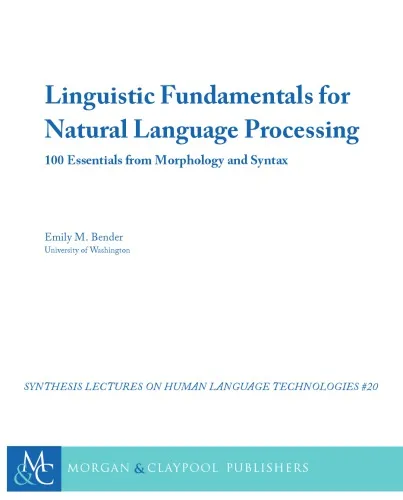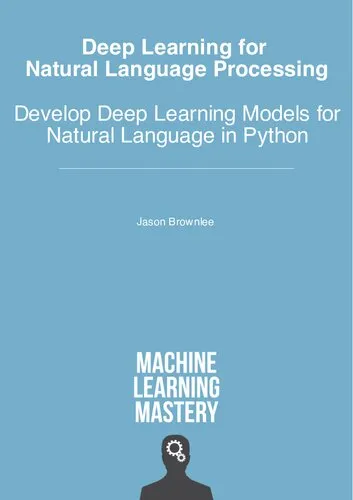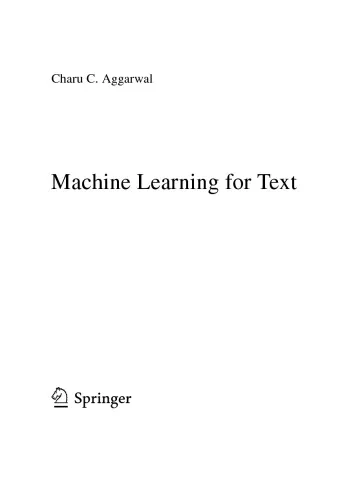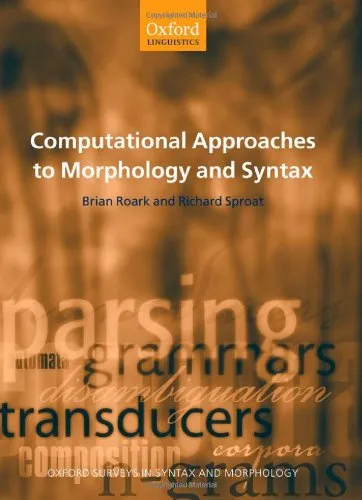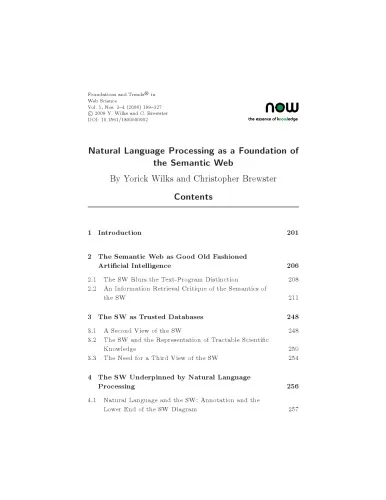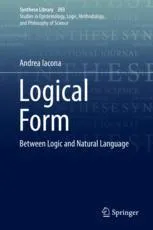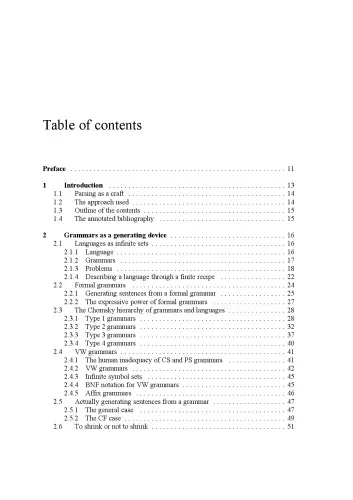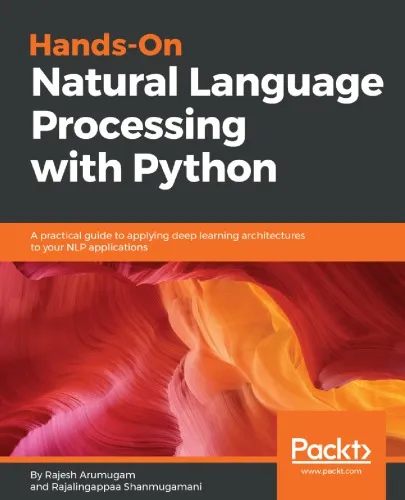Linguistic Fundamentals for Natural Language Processing
4.5
Reviews from our users

You Can Ask your questions from this book's AI after Login
Each download or ask from book AI costs 2 points. To earn more free points, please visit the Points Guide Page and complete some valuable actions.Related Refrences:
Introduction to Linguistic Fundamentals for Natural Language Processing
In the ever-evolving landscape of natural language processing (NLP), understanding the linguistic frameworks that underpin human languages is crucial. "Linguistic Fundamentals for Natural Language Processing" is a seminal text that bridges the gap between linguistic theory and the practical applications of NLP. Authored by Emily M. Bender, a leading figure in applied linguistics, this book offers invaluable insights to both academic scholars and practitioners in the tech industry.
Detailed Summary of the Book
The book delves into the essence of human language and how these insights can be harnessed for NLP applications. It begins by exploring the building blocks of language—syntax, semantics, and pragmatics—providing readers with a comprehensive foundation. The book continues by examining how these elements influence NLP tasks such as parsing, machine translation, and sentiment analysis. Emily M. Bender masterfully intertwines theoretical tenets with real-world applications, demonstrating how refined linguistic understanding can refine algorithms and improve outcomes in NLP systems.
By offering case studies and practical examples, Bender highlights the strengths and shortcomings of current NLP models. Her writing stresses the importance of linguistic accuracy, advocating for models that can better grasp the nuances of human communication. The text also emphasizes linguistic inclusivity, recommending approaches that cater to a diverse range of languages and dialects.
Key Takeaways
- Understanding linguistic fundamentals is crucial for effective NLP.
- Syntax, semantics, and pragmatics are core elements that influence NLP applications.
- The book advocates for increased linguistic accuracy in algorithmic models.
- It emphasizes the importance of inclusivity, promoting systems that accommodate diverse languages.
- Real-world case studies offer insights into the application of linguistic theory in NLP.
Famous Quotes from the Book
"Without a solid understanding of linguistic principles, any system purporting to 'understand' or process language will remain fundamentally constrained."
"Inclusivity in language processing is not just a technical challenge; it is a moral imperative."
"While data-driven approaches offer promise, they must be balanced with linguistic insight to truly reach their potential."
Why This Book Matters
This book stands out within the NLP literature due to its strong emphasis on integrating linguistic knowledge with computational techniques. As NLP applications proliferate in everyday technology—from voice-activated assistants to translation software—it's crucial to address not only the capabilities but also the limitations of these systems. Emily M. Bender’s careful exposition highlights the risks of overlooking linguistic intricacies and makes a compelling case for the necessity of linguistic inclusivity.
The work is particularly relevant in an era where ethical considerations and algorithmic biases in NLP are becoming more scrutinized. By prioritizing linguistic accuracy and inclusivity, the book provides a pathway to developing more equitable and effective NLP solutions. This foundational text is a must-read for those seeking to enhance their comprehension of human language processing and for innovators dedicated to advancing the field responsibly.
Free Direct Download
You Can Download this book after Login
Accessing books through legal platforms and public libraries not only supports the rights of authors and publishers but also contributes to the sustainability of reading culture. Before downloading, please take a moment to consider these options.
Find this book on other platforms:
WorldCat helps you find books in libraries worldwide.
See ratings, reviews, and discussions on Goodreads.
Find and buy rare or used books on AbeBooks.
1474
بازدید4.5
امتیاز0
نظر98%
رضایتReviews:
4.5
Based on 0 users review
Questions & Answers
Ask questions about this book or help others by answering
No questions yet. Be the first to ask!
